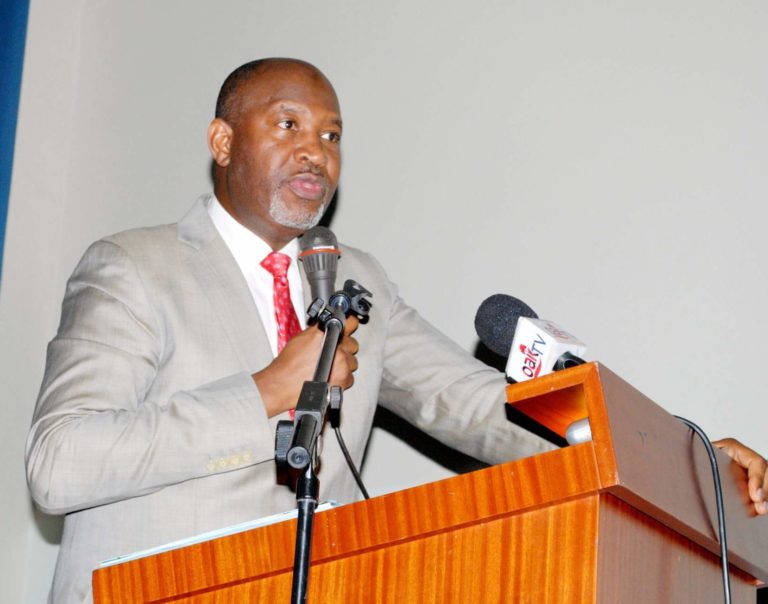The Minister of State for Aviation, Hadi Sirika, on Thursday, said aviation security personnel of the Federal Airports Authority of Nigeria (FAAN), will start bearing arms within the next three months.
Sirika, who announced this at the 5th Aviation Stakeholders Forum in Abuja, also said that contrary to insinuations, the controversial national carrier project – Nigeria Air – is still very much alive, awaiting approval of the Federal Executive Council.
He said, “Within the next three months, we will get the FAAN AVSEC to start bearing arms like their counterparts in the Transportation Security Agency of the United States.”
Sirika recalled the Turkish Airline incident in 2016 where some aggrieved passengers overpowered AVSEC officials at the Nnamdi Azikiwe International Airport, Abuja, and gained access to the tarmac.
He also cited the recent occurrence at Sokoto Airport where some political supporters forcefully entered the tarmac, stressing that these actions were clear security breaches.
The minister explained that the personnel would be provided with new uniforms, sniffer dogs and other equipment that would enable them discharge their responsibilities of securing and safeguarding airline officials, passengers and other airport users.
Sirika also spoke extensively on the controversial Nigeria Air project, which he said will gulp an estimated $300 million (N108 billion) between now and 2020.
He said the Nigeria Air project is currently at the procurement stage, awaiting the approval of the Federal Executive Council (FEC).
Sirika also discredited claims that the government spent $600,000 on the design of the logo after the carrier was unveiled at the Farnborough Airshow in London in July.
“In recent months, misinformation, factual errors, insinuations and fabrications have been peddled in both social and print media on the Nigeria Air project.
“These include desirability, inadequate planning, non-consultation with stakeholders, lack of transparency and publications of fictitious amounts allegedly spent by the government on the project, among others.”
Sirika said effort to establish the national carrier predated the composition of the present FEC and even his own appointment as a Minister.
He said, “Mr. President directed the then Ministry of Aviation to commence the process for the establishment of a national carrier during the ministerial briefing on the aviation sector.
“The ministry set up a committee, which came up with the modalities for the establishment of a national carrier.
“The committee, in its report submitted in September 2015, recommended a private sector-led national carrier with 10 per cent government ownership and non-involvement of government in the management of the airline, but the provision of enabling environment for its operation.”
The Minister said that following approval by the FEC, a consortium of transaction advisers comprising Airline Management Group Ltd., Avia Solutions Ltd and Tianaero FZE, was appointed in line with best practices.
He said the transaction advisers completed the outline business case report, which was reviewed by the Infrastructure Concession Regulatory Commission (ICRC), which subsequently issued the OBC Certificate of Compliance.
He added that the report has been presented to FEC for consideration to move to the procurement phase and then Full Business Case, where it will be opened for bidding by investors, including ordinary Nigerians.
On the financial implications, he said the estimated funding requirement for the establishment of the project is $300 million spread between 2018 and 2020.
He added that the expected initial start–up capital of $55m comprises $25 million for deposit for new aircraft and $30 million for working capital from June to December 2018, while the estimated working capital for 2019 is $100 million and $145 million for 2020 to be provided by the Strategic Equity Partners who are expected to manage the project.
Sirika maintained that the Nigeria Air project does not lack investors, as institutions and airlines such as the African Development Bank, AFREXIM, US-EXIM, Standard Chartered Bank, Boeing, Airbus and China-Exim Bank, had already expressed interest.




